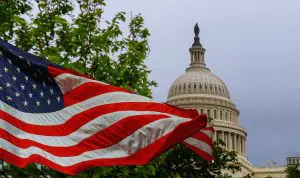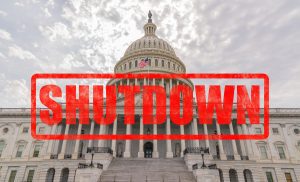What to Expect from October 1, 2024 and Beyond
Updates to Notices of Funding Opportunities (NOFOs)
Key Definition Updates
Clarification on Fixed Amount Awards and Contracts Section 200.201
New Section 200.217: Whistleblower Protections
Internal Controls and Cybersecurity Section 200.303
Clarification on Program Income Section 200.307
Equipment Threshold Increased Section 200.313
Supplies Threshold Increased Section 200.314
Procurement Updates Sections 200.318, 200.319, and 200.320
Subrecipient and Subaward Updates Sections 200.332 and 200.333
Indirect Costs: What’s New?
New De Minimis Rate
Updated Guidelines for Organization Costs Section 200.455
Single Audit Requirements: What’s Changing?
What You Need to Do as the Recipient of Federal Awards
Need Help and Resources?
On April 4, 2024, the Office of Management & Budget (OMB) issued revisions to the Uniform Guidance (2 C.F.R. Part 200). While this is not the first revision to Uniform Guidance, this is the first extensive revision since it went into effect a decade ago. The most impactful of the changes are included for consideration in this article, however there are many more changes that recipients of federal awards should be aware of.
What to Expect from October 1, 2024 and Beyond
Starting October 1, 2024, all newly issued federal awards must comply with the 2024 Uniform Guidance revisions. If your award was issued before this date, these revisions might still apply if the awarding agency decides it’s suitable (e.g. award extends into your fiscal year following implementation of revisions, or beyond) or additional funding is provided. Generally, agencies cannot retroactively enforce new requirements and the 2024 Uniform Guidance revisions will typically only impact activities after the contract or amendment date. However, with written approval, some provisions that reduce your burden may apply to past activities—e
If your award is amended to include the 2024 revisions, these changes will also apply to any subawards. As a pass-through entity, you must amend any subawards under the respective grant accordingly. If your federal agency hasn’t applied the 2024 revisions to your award, you cannot apply them to subawards on your own, even if the subawards are issued after October 1, 2024 under a grant that was issued prior to that date.
Updates to Notices of Funding Opportunities (NOFOs)
Federal agencies must update NOFOs issued before October 1, 2024, if they lead to awards after that date, to notify applicants about the 2024 revisions. Agencies should also update active NOFOs on Grants.gov to reflect these changes. If an application period has closed, agencies need to inform selected recipients that the 2024 revisions will apply. Applicants may need to revise and resubmit their budgets to reflect the new changes, such as the increased de minimis indirect cost rate, if the award is going to be granted after October 1, 2024.
Key Definition Updates
- Period of Performance: Now excludes estimated start and planned end dates. It now specifies that the period of performance means the time interval between the start and end date of a Federal award, which may include one or more budget periods. Notably, identifying the period of performance in the Federal award as per
§200.211(b)(5) does not obligate the Federal agency to provide funding beyond the approved budget period. - Questioned Costs: These are costs auditors find potentially noncompliant, poorly documented, or unreasonable. These costs remain uncertain until reviewed and confirmed as improper based on OMB Circular A-123 Appendix C. They encompass both specifically identified and estimated costs. New audit reporting requirements now include explanations for questioned costs when the amount is unknown or not reported.
Clarification on Fixed Amount Awards and Contracts Section 200.201
Section 200.201 includes updates on fixed amount awards and contracts:
- Negotiation and Budgeting: Budgets for fixed amount awards are negotiated between the Federal agency and the recipient or subrecipient based on proposals, pricing data, and subpart E adherence.
- Accountability: Accountability is based on performance and results, communicated through performance reports or routine monitoring. No financial reporting is required, but record retention is mandatory as outlined in §§ 200.334 through 200.338.
- Cost Sharing: Fixed amount awards must not be used in programs requiring cost sharing.
- Program Income: Fixed amount awards may generate and use program income according to Federal award terms, but § 200.307 does not apply.
- Certification: Recipients must certify project completion or identify incomplete activities, ensuring all expenditures align with § 200.403. Unexpended funds are retained by the recipient if activities are completed as agreed.
- Reports and Approvals: Periodic reports may be required. Prior approval requirements include specific sections of § 200.308 and § 200.333.
New Section 200.217: Whistleblower Protections
Employees of recipients or subrecipients of Federal funds are protected from discharge, demotion, or discrimination for reporting evidence of:
- Gross mismanagement of a Federal contract or grant
- Gross waste of Federal funds
- Abuse of authority related to a Federal contract or grant
- Substantial and specific danger to public health or safety
- Violations of law, rule, or regulation related to a Federal contract or grant
Recipients and subrecipients must inform their employees in writing about these whistleblower rights and protections under 41 U.S.C. 4712. Refer to the statutory requirements for details at 10 U.S.C. 4701, 41 U.S.C. 4712, 41 U.S.C. 4304, and 10 U.S.C. 4310.
Internal Controls and Cybersecurity Section 200.303
An important update to Section 200.303 focuses on internal controls. When the Uniform Guidance was first issued in 2013, it required organizations to establish, document, and maintain effective internal control over the Federal awards. Recipients and subrecipients are now required to include controls that address cybersecurity and other measures to protect sensitive information. As cyber threats continue to evolve, ensuring your organization has robust protections in place is essential for safeguarding federal funds and program data.
Take time to evaluate your current internal controls and consider enhancements related to data security, especially if you’re handling sensitive information or managing large amounts of federal funds. Be sure to include these updates as part of your overall grant management strategy.
Clarification on Program Income Section 200.307
Recent updates to section 200.307 clarify that, unless stated otherwise in the Federal award’s terms, or for certain institutions, the deduction method will be used. This reduces the total federal award by the amount of program income earned.
Program income earned after the performance period typically has no handling requirements, unless agency regulations or the award’s terms specify otherwise. However, Federal agencies may negotiate the use of post-performance income during the closeout process, providing some flexibility based on the recipient’s situation.
Equipment Threshold Increased Section 200.313
The equipment threshold has been raised from $5,000 to $10,000. This change provides more flexibility in how recipients handle smaller assets. When equipment purchased with federal funds is no longer needed for the project, terms of the Federal award may require you to see disposition instructions from the Federal agency or pass-through entity. Here’s what you need to know:
- For equipment valued at $10,000 or less: You can keep, sell, or dispose of the equipment with no further obligations to the federal government.
- For equipment valued over $10,000: You may still keep or sell the equipment (if certain stipulations are met), but the federal agency is entitled to a share of the proceeds or its current market value, based on their contribution to the purchase. You can also retain up to $1,000 from the federal share to cover selling or handling expenses.
Additionally, if the equipment is lost, damaged, or stolen, and this impacts the program, you must notify the federal agency or pass-through entity.
This doesn’t change the threshold an agency uses to determine capitalization of costs as a capital asset as this would still follow the agency’s capitalization policy. It only impacts the need to flag those assets as being funded with federal awards.
Supplies Threshold Increased Section 200.314
The threshold for supplies has also been increased from $5,000 to $10,000. Like equipment, any unused supplies valued over this amount may require compensation to the federal agency. This change applies to all types of supplies, not just similar items, so be sure to account for them in your grant management.
Procurement Updates Sections 200.318, 200.319, and 200.320
200.318, General Procurement Standards – has been updated to include allowable provisions for contracts to reflect labor-related goals.
200.319, Competition – has removed the restriction on using geographic preferences, and offered clarification on incorporating a scoring mechanism that rewards bidders committing to specific performance metrics.
200.320, Procurement Methods – revised to streamline processes and clarify terminology:
- Local and tribal governments are no longer required to publicly open sealed bids.
- “Small purchases” is now referred to as “simplified acquisitions.”
- Both “micro-purchases” and “simplified acquisitions” are classified as informal procurement methods, simplifying the process for smaller purchases.
Subrecipient and Subaward Updates Sections 200.332 and 200.333
- Pass-through entities now have a requirement to ensure that potential subrecipients are not suspended or debarred from receiving federal funds.
- The threshold for fixed amount subawards has increased from $250,000 to $500,000, with written approval from the federal agency, and compliance with Section 200.201.
- Similarly, the threshold of subawards for modified total direct costs has been raised from $25,000 to $50,000.
Indirect Costs: What’s New?
If you’re managing indirect costs, here are some important updates:
- NICRAs (Negotiated Indirect Cost Rate Agreements) in place before October 1, 2024, must be honored, but they can be renegotiated to reflect the new Modified Total Direct Costs (MTDC) base. OMB supports requests to renegotiate NICRAs that will be effective beyond October 1, 2025.
- For provisional, predetermined, or fixed rates:
- Rates in effect before October 1, 2024, must be finalized with the approved MTDC base.
- Future provisional rates must use the new MTDC base starting October 1, 2024.
New De Minimis Rate
As a recipient of a federal award, beginning October 1, 2024, you have the option to use the new 15 percent de minimis indirect cost rate for any award executed on or after this date. All Federal agencies are required to honor this updated de minimis rate unless a different rate is specified by law (such as Federal statute or regulation) or permitted by 2 CFR part 200. If you are submitting proposals to Federal agencies before October 1, 2024, for programs anticipating awards on or after October 1, 2024, you may incorporate the 15 percent de minimis rate into your budget calculations, even if the NOFO has not yet indicated that the 2024 revisions will apply.
For your existing awards, in line with the guidelines under Federal Agency Adoption and Implementation of 2 CFR, Federal agencies may permit you to apply the 15 percent de minimis rate to current awards, provided there are adequate funds available to support this rate. In such instances, you must only apply the 15 percent de minimis rate to costs incurred after the amendment’s effective date implementing this rate. You are prohibited from retroactively applying the de minimis rate to costs incurred before the effective date of the amendment.
Updated Guidelines for Organization Costs Section 200.455
Section 200.455 on Organization Costs has been revised to include new allowable costs concerning data and evaluation. Data-related expenditures can include data systems, personnel, cybersecurity, and other essential items for managing and enhancing programs. Evaluation expenses may encompass evidence reviews, planning evaluations, conducting evaluations, and sharing results to improve program design and administration. Moreover, this section now specifies that costs related to persuading or dissuading employees from collective bargaining and associated activities are unallowable.
Single Audit Requirements: What’s Changing?
Single Audit Threshold
Significant updates to Single Audit requirements in Subpart F will take effect on October 1, 2024. The audit threshold will rise to $1,000,000 for fiscal years starting on or after this date. Federal agencies were permitted to implement these changes earlier for new or amended awards beginning June 21, 2024. Compliance requirements from the 2024 revisions must not be applied to your awards issued prior to October 1, 2024, unless the Federal agency has implemented these revisions.
Single Audit Reporting Extension
If meeting the nine-month submission deadline for Single Audit reports imposes an undue burden on you, you can request an extension from the cognizant or oversight agency. The agency will consider whether the delay is due to significant and unavoidable circumstances and how it impacts other project activities. Extensions aren’t granted solely to maintain a low-risk auditee designation, though that could be an incidental result of the extension. Additional guidance on this process is provided in OMB Memorandum M-24-11.
Agencies authorizing extensions must inform all relevant Federal agencies and the OMB. In cases of significant events affecting many recipients, OMB will ensure consistent extensions across cognizant agencies. Agencies must also notify the recipient of their decision regarding the extension request.
What You Need to Do as the Recipient of Federal Awards
As a recipient of federal awards, you may need to manage both awards pre-2024 revisions and new awards under the 2024 revisions simultaneously. It is crucial to note that while it may be necessary for you to implement organizational changes to accommodate the new awards incorporating the revisions, certain flexibilities granted by the new revisions will not apply to Federal awards issued before these revisions became effective.
Collaborate closely with your Federal agency during this period to clearly outline the requirements specific to each Federal award. Additionally, these agencies can assist you in addressing any questions about how systematic changes (e.g., internal controls, mandatory disclosure procedures) could impact your compliance with the terms and conditions of your existing Federal awards.
Its also important to note that these changes do not represent all changes to the Uniform Guidance. To stay compliant with all changes, here are some actionable steps:
- Review the Uniform Guidance document and COFFA crosswalk for changes that may impact your agency.
- Review your existing grants for potential amendments under the 2024 revisions, and discuss with granting agencies as appropriate.
- Revisit grant applications that are pending award for the need to submit additional or updated information.
- Review and update policies as appropriate:
- Include the new whistleblower protections related to Federal funds, and inform your employees in writing.
- Incorporate changes to equipment and supplies thresholds, and evaluate inclusion of applicable disposition activities.
- Review subaward activity for applicable changes and incorporate suspension and debarment requirements.
- Evaluate overall management of the grant with changes per the 2024 revisions.
- Review Indirect Cost and Direct Costs under each grant to ensure allowability.
- Review Indirect Cost Rate to ensure compliance with 2024 revisions for existing, amended, and new grants.
- Prepare for Single Audit Reporting requirements with the new threshold, in line with your entities fiscal year.
Need Help and Resources?
If these changes sound overwhelming, don’t worry! LSL is here to help you navigate the 2024 revisions, update your internal controls, and prepare for upcoming audits.
For more detailed information, check out the following resources:
- Council on Federal Financial Assistance (COFFA) Resources: A helpful tool offering a crosswalk of the revisions.
- Uniform Guidance Document: Full text of the Uniform Guidance for federal awards.
- Contact LSL for tailored support in implementing these changes, updating your internal controls, or preparing for upcoming audits.




